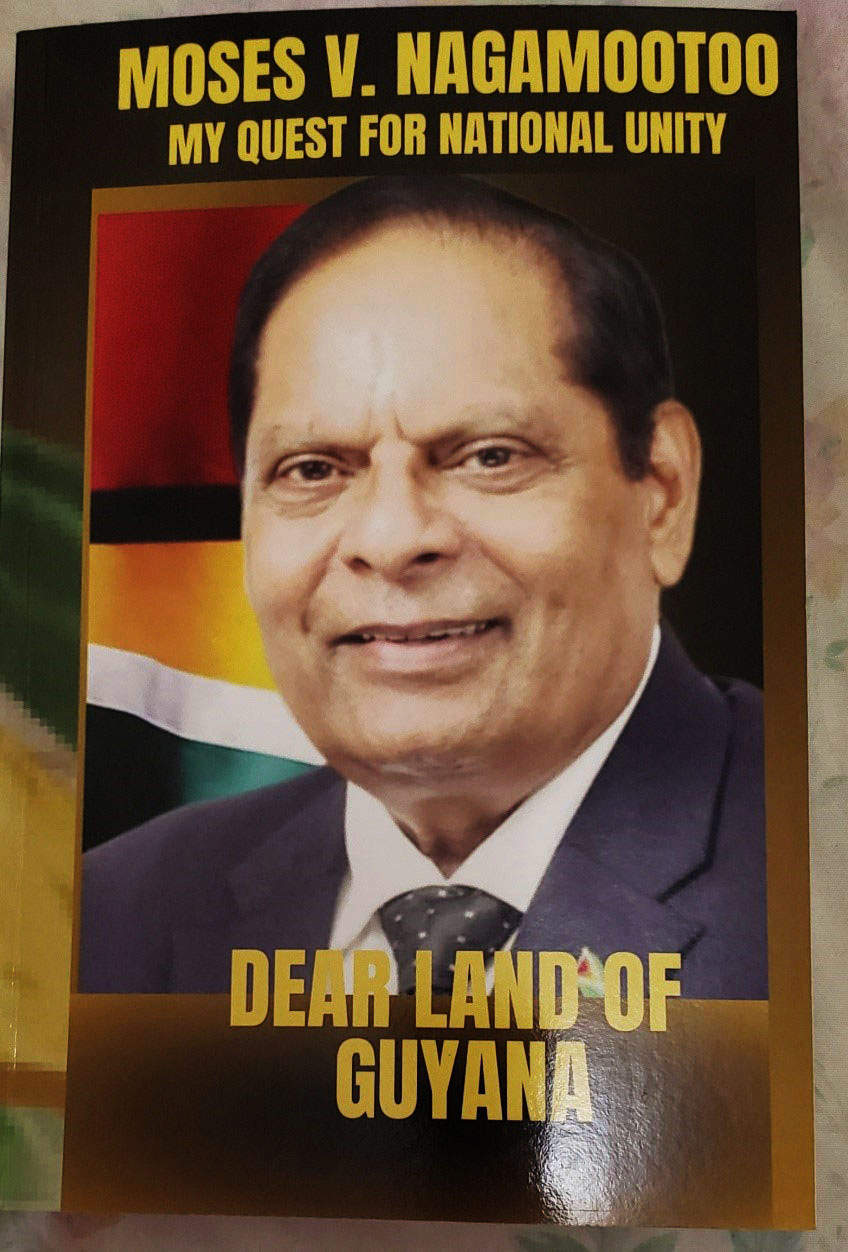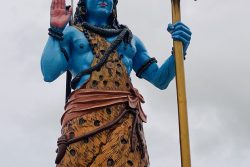– A book review by Christopher Ram
Part 6
Introduction
This is the sixth and final part of the review of Moses Nagamootoo’s autobiographical account of his political career starting in 1961 until the fall of the Coalition Government in 2020, of which he was the Prime Minister.
Under the title The New Normal, chapter 23 traces the history of the relationship between Guyanese of African and Indian descent, claiming that there was racial discrimination on both sides of the major ethnic divide which existed long before the 1953 elections. The chapter notes as an incontestable fact, that Indians suffered from racial violence, discrimination and alienation under the PNC rule. It highlights his parents’ choice to marry under Christian rites, then predominantly Afro Guyanese, even as they continued their Hindu religious practices, and the role and contribution of the Afro village nurse and schoolteachers. Controversially, he sees as a response to the “anti-Indian dilemma,” the formation of the Indian Peoples’ Revolutionary Associates (IPRA) by Moses Bhagwan, described as Jagan’s successor-in-waiting, and the teaming-up of Dr. Fenton Ramsahoye, Doodnauth Singh, Ayube McDoom and Ganraj Kumar to form the Guyana Anti-Discrimination Movement.
Burnham policies and elections
According to Nagamootoo, the import substitution policies of Forbes Burnham, the struggle for trade union recognition by sugar workers, and the closure of the Cuban rice market, formed part of the racially charged backdrop for distrust between the two communities. In this context he also recalls the transfer of a murder charge from the mainly Indo-Guyanese Corentyne to the mainly Afro-Guyanese Georgetown in which Arnold Rampersaud was charged with the murder of an Afro-Guyanese policeman, increasing the odds of a conviction. Nagamootoo gives little or no recognition to the role of the multiracial WPA and Dr. Walter Rodney in helping to secure the acquittal of Rampersaud.
Demonstrating the ethnic cleavage in electoral politics in Guyana, Nagamootoo writes that the PNC received just over 40% of the votes cast in 1992, the same it got in 1964 when transparent elections were last held. Similarly, the support for the PPP was also unchanged, while the WPA, whose activism had resulted in widespread multiracial support in its campaign against the PNC, and for a government of national unity, received little support in those elections.
The chapter closes with comments on the emergence of “resource nationalism” where corrupt management and appropriation of the wealth of countries by foreign companies have led to the intervention of the army. Yet, in the very next chapter, he writes of “misconceptions of and about the process that ended in the 2016 petroleum.”
The hardliners
Even as he looks forward in chapter 24, Nagamootoo reminds readers of the infamous “kith and kin”, and “slo fire, mo fire” comments by Desmond Hoyte, former President as well as Leader of the Opposition, as being both “irresponsible and repugnant”. Interestingly, the name Hoyte does not appear anywhere in the book, nor does Hamilton Green. On the other hand, he notes that his own publication The Political Situation And The Way Forward In Guyana was consigned to the bonfire by PPP hardliners, and that when he suggested to Janet Jagan the possibility of Cheddi Jagan being buried or his ashes interred in the Botanical Gardens, her response was: “No, no Moses they will dig up his bones and drag them in the streets of Georgetown”.
On the issue of Constitutional Reform, the book notes the work of the Ramkarran Commission (1999) and Nigel Hughes Sub-committee on Constitutional Reform as having started a dynamic process, but which needs political will to achieve the necessary changes, especially for a possible government of national unity, a most unlikely prospect. Yet, he expresses, double-handedly, that President Ali would keep his many promises and beat back “the perception that he is just a figurehead in the leadership troika”, which possibly includes the Prime Minister.
Chapter 25 returns to internal PPP matters under the caption Crooked Selection Process, the purpose of which was to give a full explanation for his walking from the PPP. The chapter features a letter he wrote to the General Secretary of the party in response to an invitation for him to address the Executive Committee of the Party. There were clearly irreconcilable differences.
My take on the book
While truth is indeed of virtue, for those who occupy the political space, it hardly ever wins friends. In the case of Nagamootoo’s Dear Land of Guyana, nothing can be more truthful. Whether he intended it or not, he is particularly harsh on several persons, including those who came lately to the PPP, and those with whom he had differences. These, and others, should find this book of interest, if not comfort. Nagamootoo accuses the PPP of engaging in military training; of rigging internal elections; of destroying the dreams of its founder leader Cheddi Jagan; and has exposed a different side of the late Janet Jagan.
The book is a contribution to the country’s political history by a contemporary writer, in his style and as he sees himself. It is not without its controversies and might therefore have been expected to generate debate and response from the persons named, even if only to defend their reputation. That has not happened. If no one else, President Granger owes it to the nation to confirm or deny the role of the Americans in the conclusion of the 2020 elections debacle.









